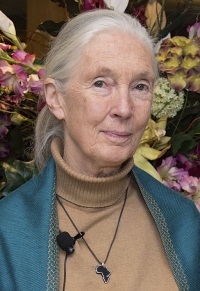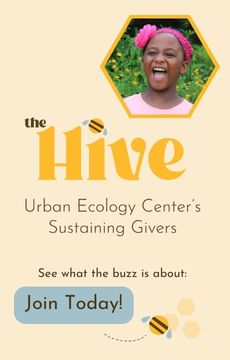It was also hard to imagine that we would be able to connect with someone internationally known on the environmental scene. But now all of these places, and a surprising number of well-known people, are touched in some way by our work. Our stewardship of the land here in Milwaukee is impacting places many thousands of miles away! Did you know that an indigo bunting that we have recaptured in our banding nets four times over the past years ... one that uses Riverside Park as its summer nesting grounds, likely spends every winter in Guatemala? Three monarchs we tagged (yes indeed, we put a tiny sticker on their back wings) made it all the way to Michoacán, Mexico where they overwinter in massive colonies. But it is not just animals we are impacting across borders. If you were to visit La Paz, Mexico you would find El Mangle, an ecology center designed to be similar to our buildings and community engagement model. Last summer an Israeli delegation visited on an excursion to five different U.S. cities to see if there was a project that inspired them. Their intention was to recreate that project in northern Israel.
Guess what they ended up picking as their project? As I write, Urban Ecology Center Board Member Eric Crawford, his wife Elsie, Beth Heller and I are preparing for a trip to Tiberias, a small city on the Sea of Galilee. We are going to help local residents explore how to create their own Urban Ecology Center. Our most recent global connection happened during the publishing process of our new book, Urban Ecology: A Natural way to Transform Kids, Parks, Cities and the World. Our publisher asked if in addition to getting quotes of support from local leaders, we would be able to get an endorsement from someone nationally or even internationally known? With our ever expanding network it was possible. We are connected to people who are internationally known in environmental circles. But the question was, did we know anyone who would be recognized by our publisher and people in general? You know, someone like Jane Goodall? Hey, wait, could we connect to Jane Goodall? Wouldn’t that be amazing? At first, I laughed at the idea. We had no connection to her as far as I knew. That’s when we had an inspired idea.
Our Forester, Caitlin Reinartz, is the daughter of Gay Reinartz, Director of the Bonobo and Congo Biodiversity Initiative of the Milwaukee County Zoo -- essentially the Jane Goodall of Bonobos right here in Milwaukee! “Caitlin, do you think your Mom knows Jane Goodall?” I asked. A few texts later and I was in conversation with Gay. She agreed to help and wrote a lovely letter to Jane. In the wee hours of the morning Jane’s assistant, Mary Lewis, let us know that Jane was off line in Tanzania. Her odd hour of correspondence led me to believe that Mary herself was communicating from somewhere exotic perhaps, and sure enough, she was in the Orkney Islands off the Northern coast of Scotland. Mary kept our letter in mind and miraculously connected us to Jane in the narrow window of time she was around wifi.
Now, when the print version of our book comes out this summer you’ll see the following quote: “As one who has dedicated my life to protecting the Chimpanzee, I know from experience that it is only by instilling respect and love for nature in the next generation that we have any chance to preserve thriving ecosystems that support life on this planet. It is why places like the Urban Ecology Center are so critical for conservation education. As more and more children are growing up in cities, teaching land stewardship and nature conservation to children and their families is critical. I am excited by this book as it puts forth a practical blue print for how to do this well. The book shares the story of a model that has been perfected in three unique urban neighborhoods in Milwaukee, is being modeled in other cities in the United States and is beginning to spread to cities across the globe.” -- Jane Goodall PhD, DBE Founder - the Jane Goodall Institute & UN Messenger of Peace It is so very true!
All of these international connections make us want to focus on Milwaukee even more. Imagine this: If Milwaukee could become an ecologically literate city, meaning its kids, all kids in every neighborhood were to grow up with the kind of programming that the Urban Ecology Center offers, we as a collective would have a much bigger impact on other cities around the world. And it is this kind of thinking that is required to make sure that all species, like the Chimpanzee and the Bonobo all the way on the other side of the world, have a fighting chance for survival.





